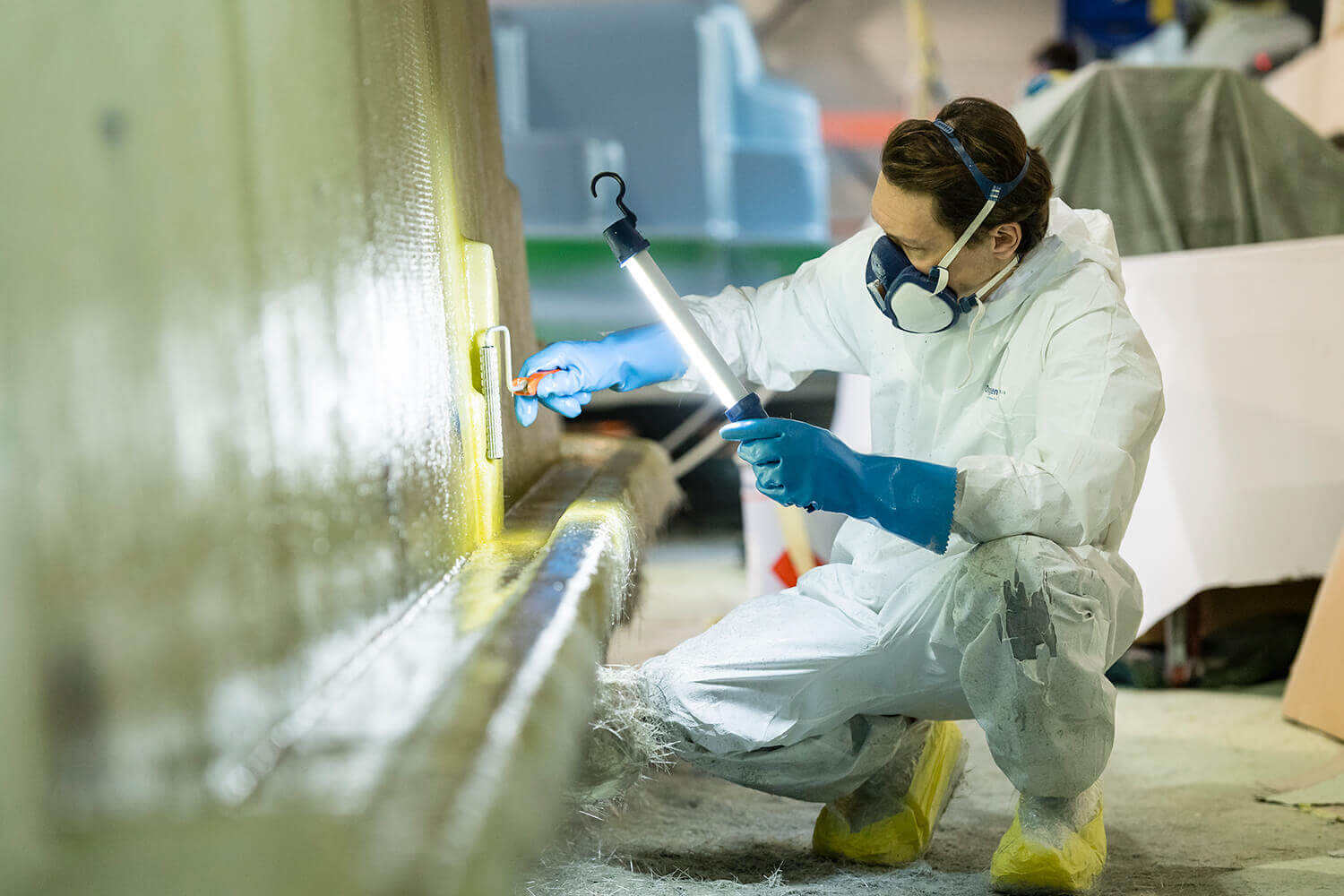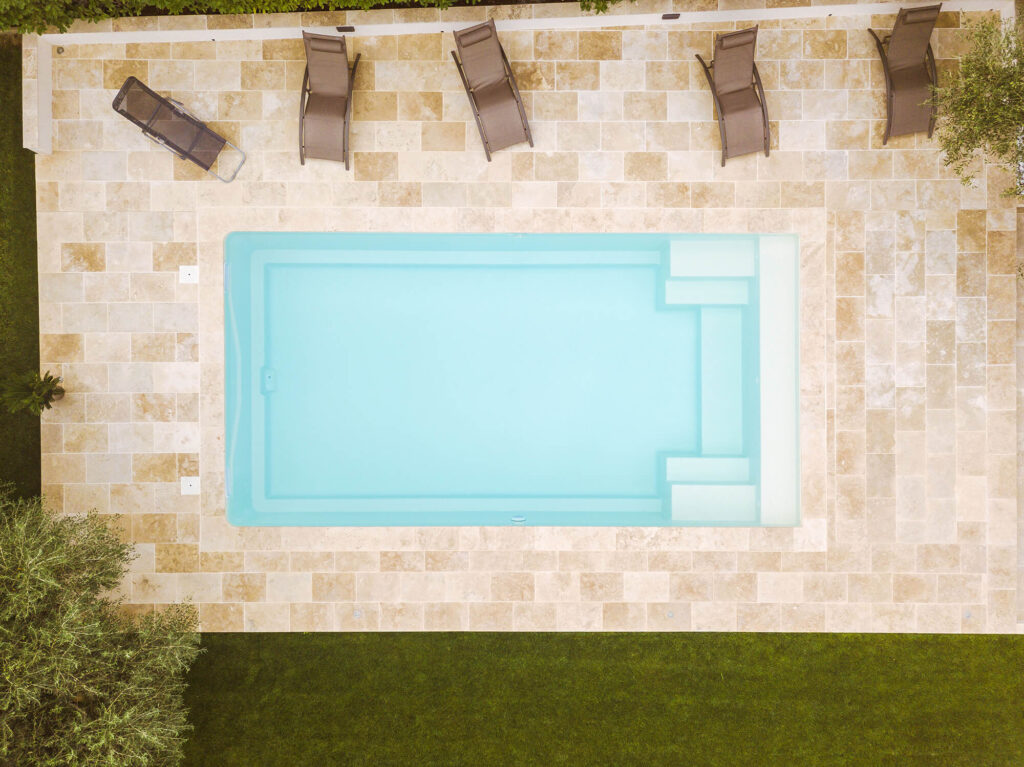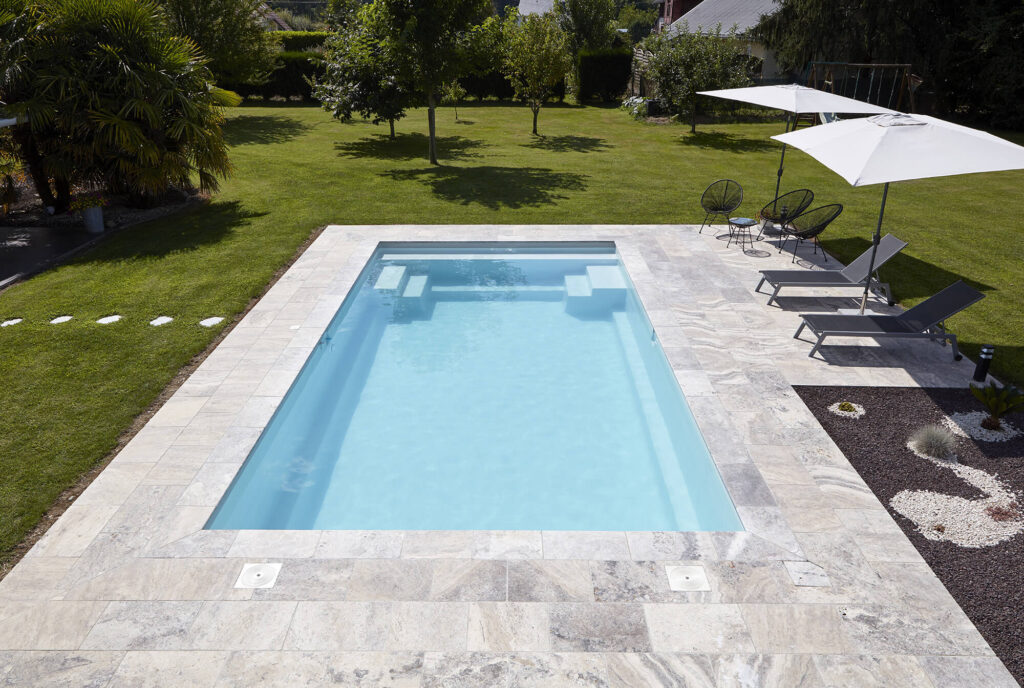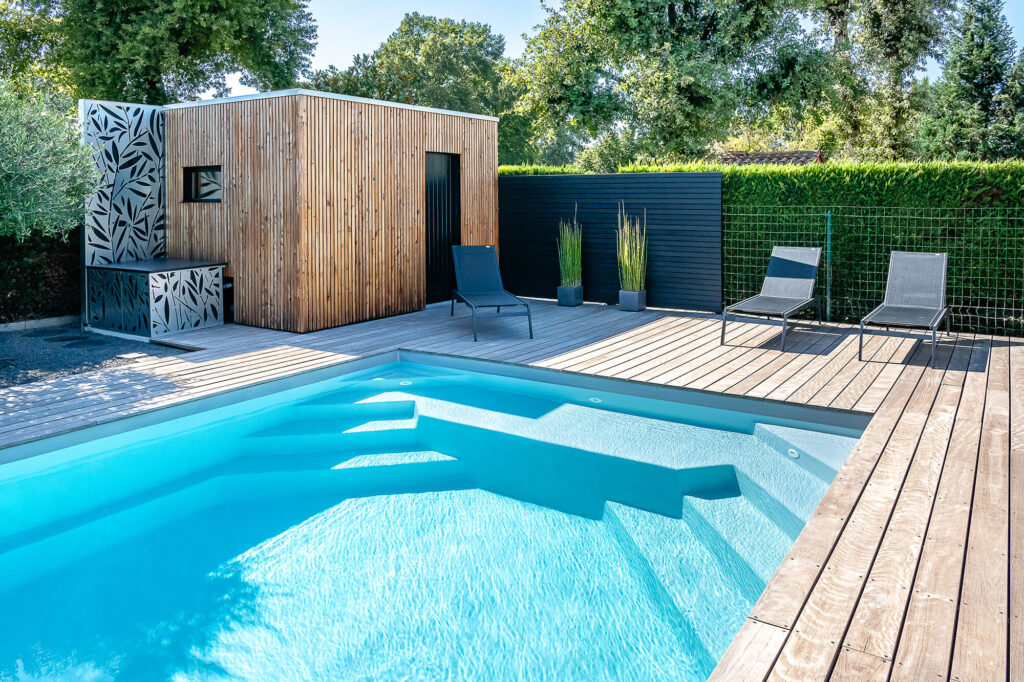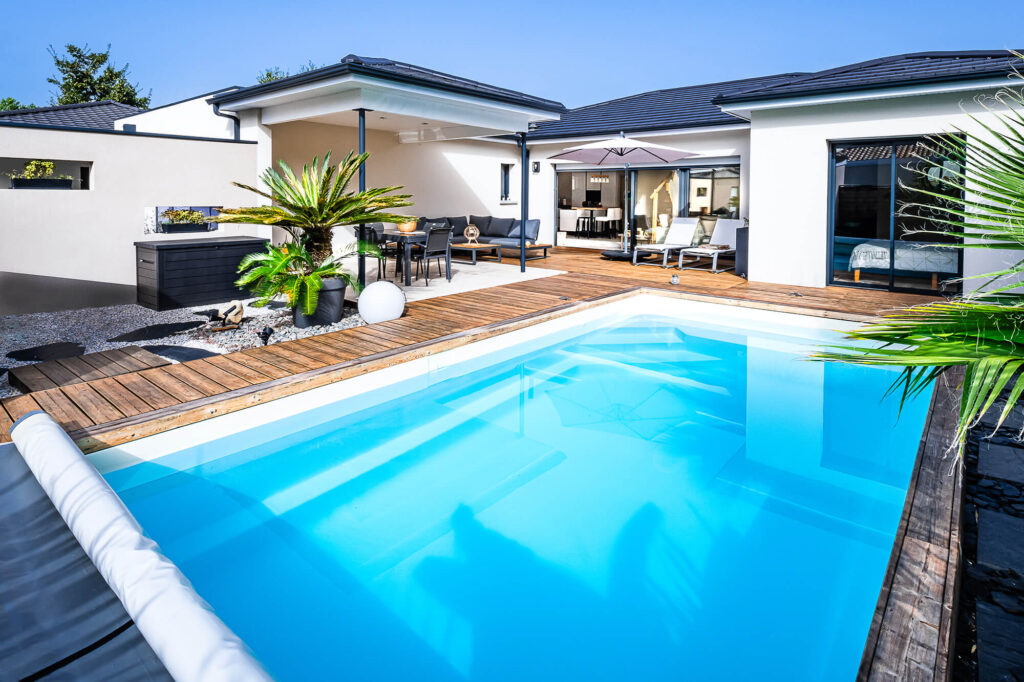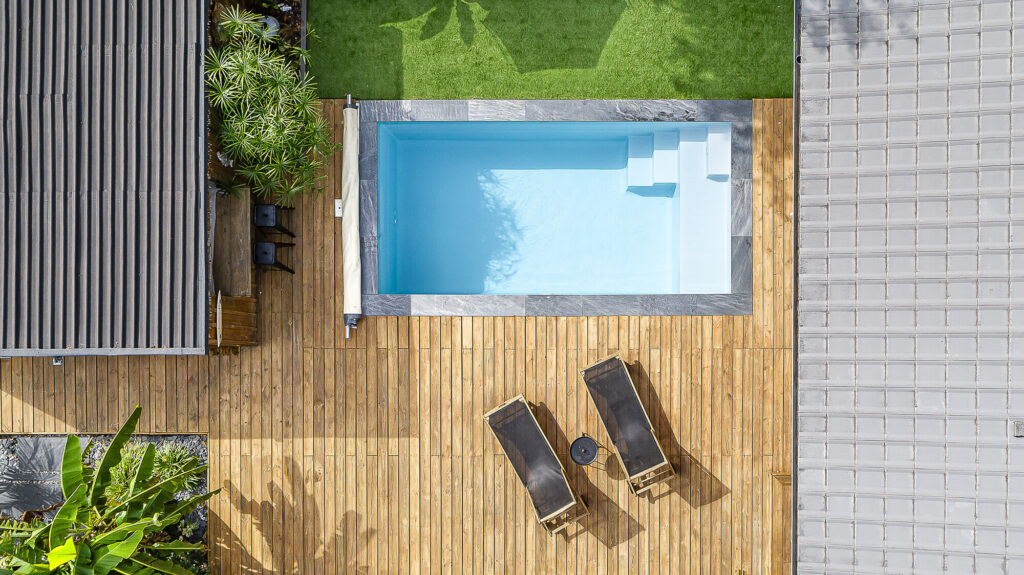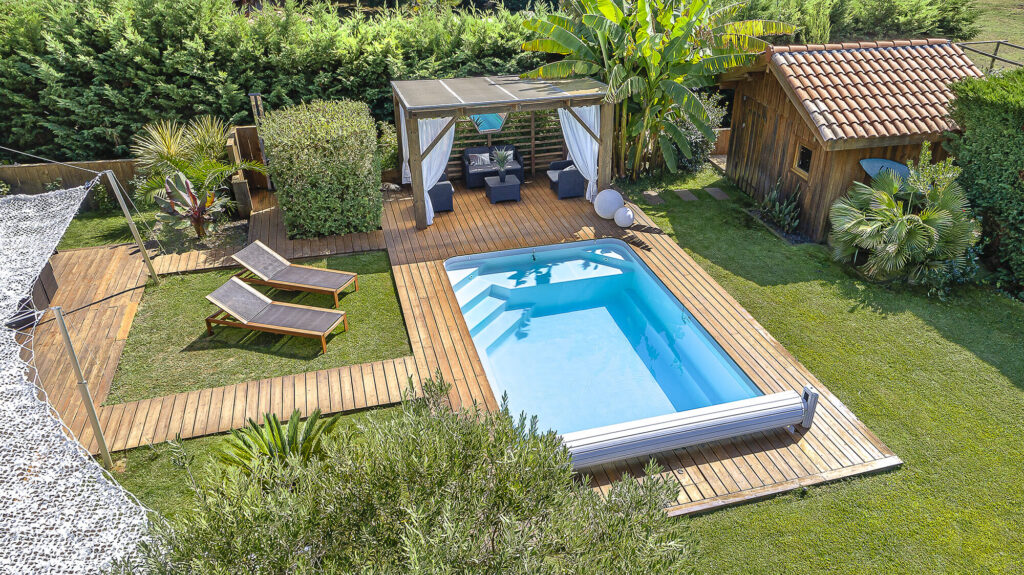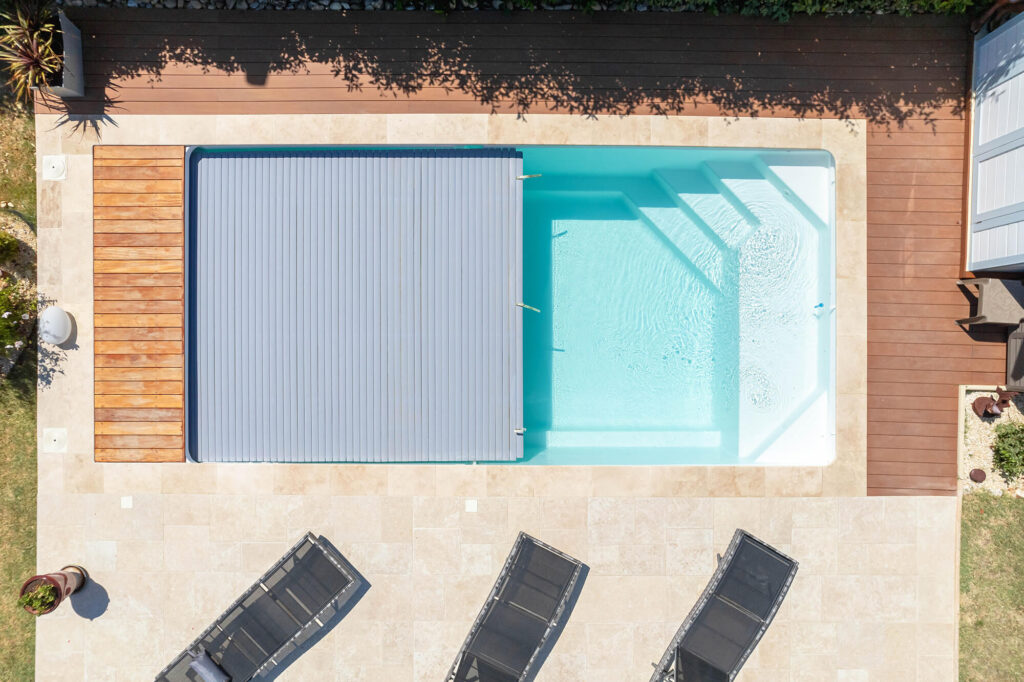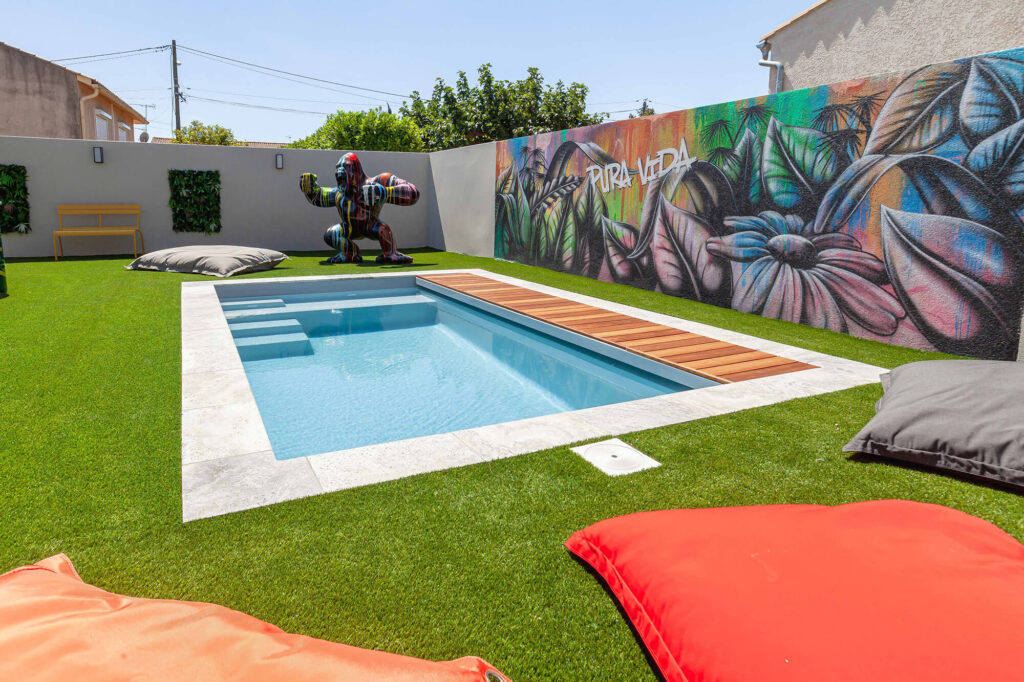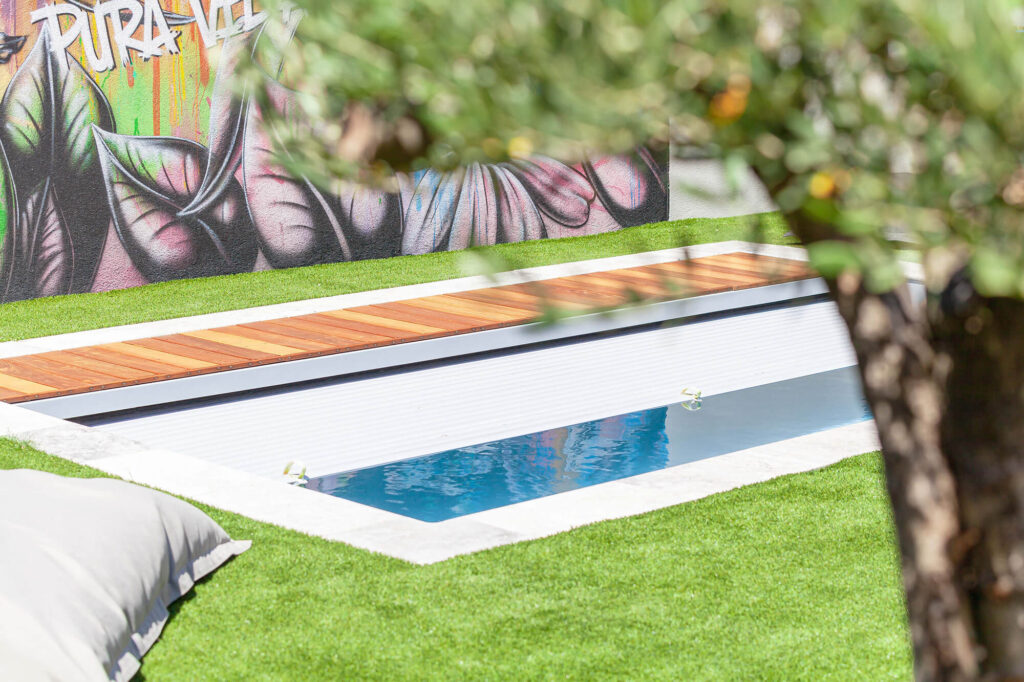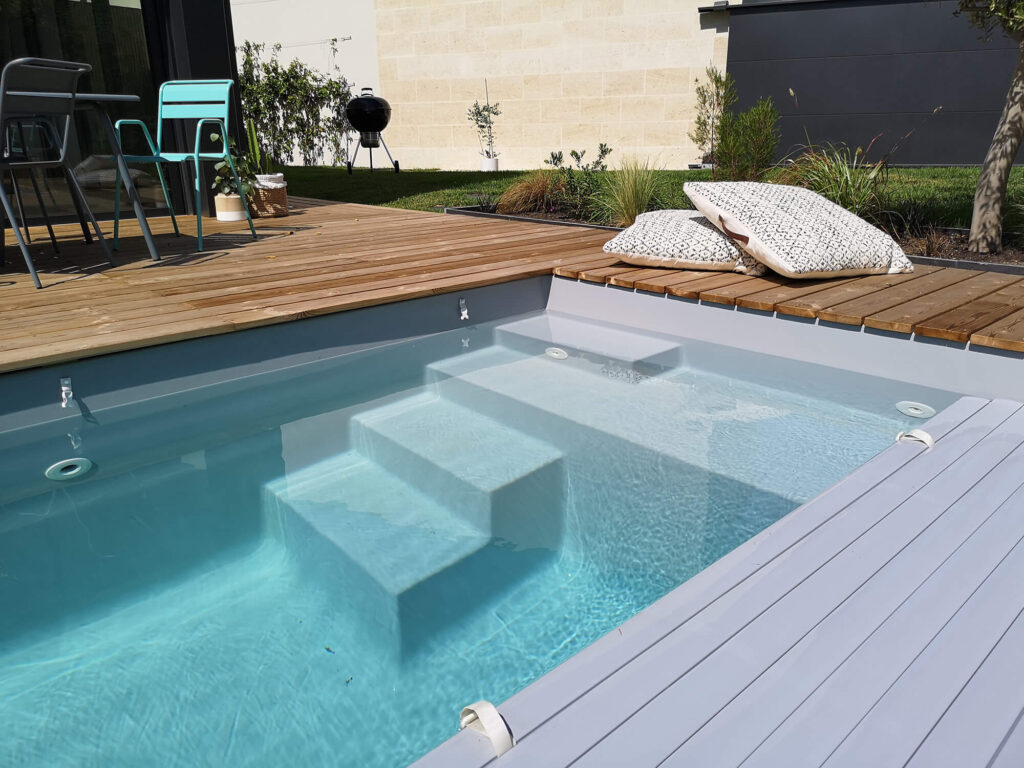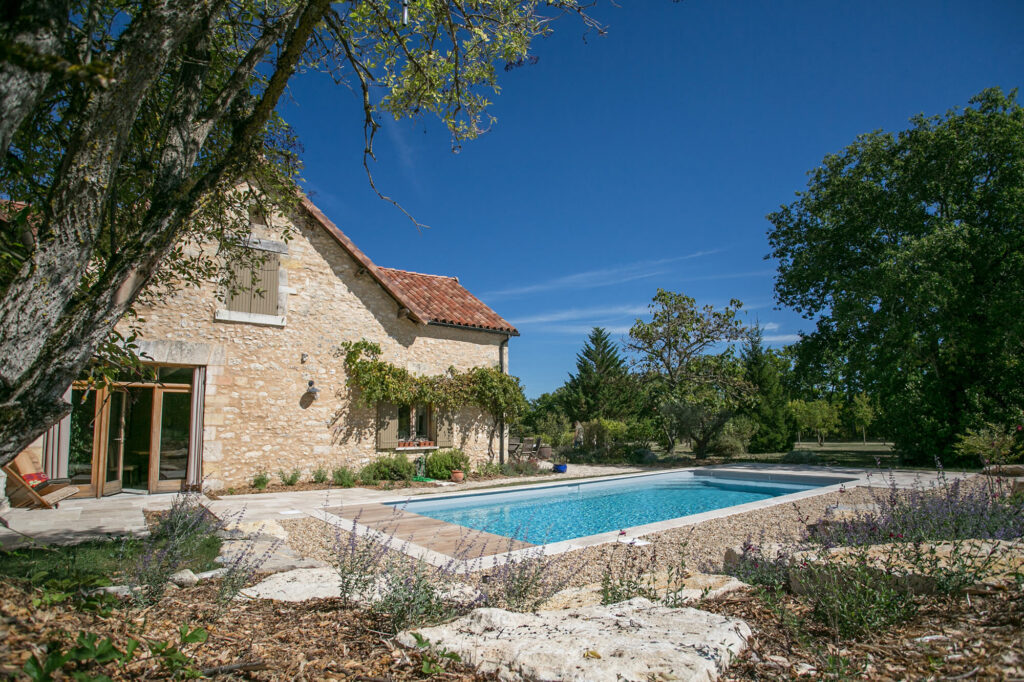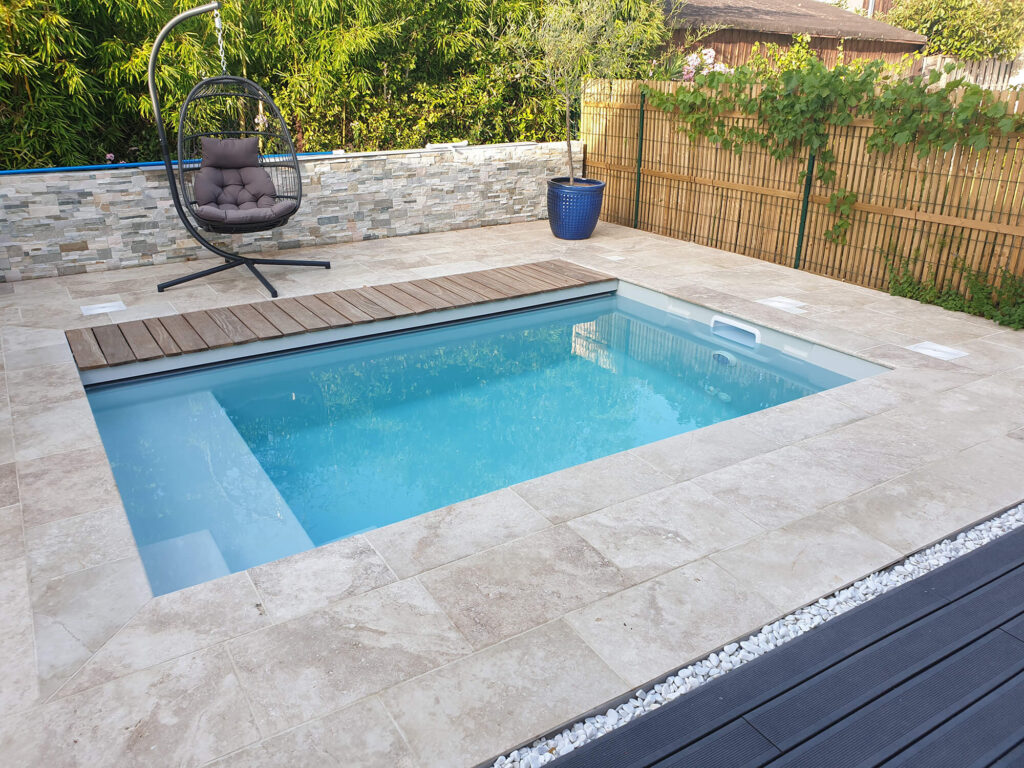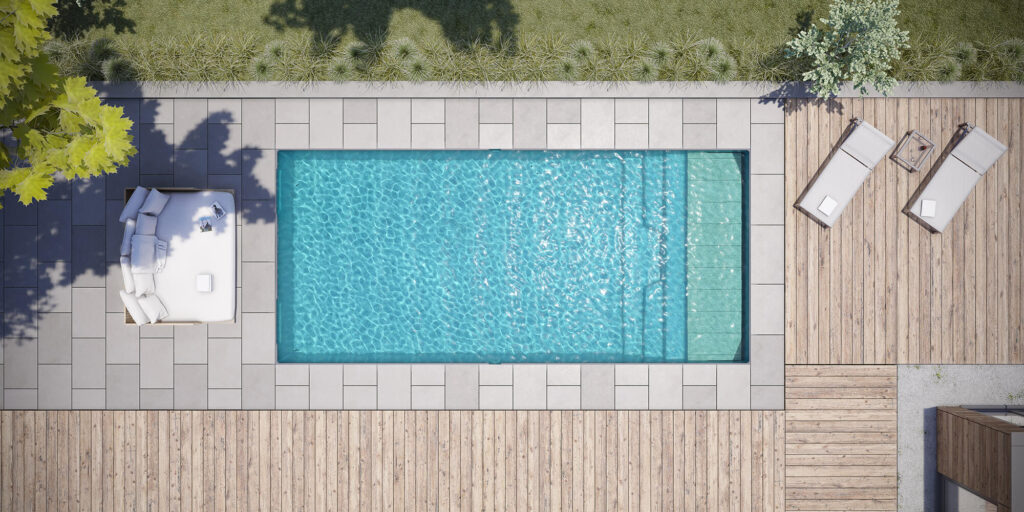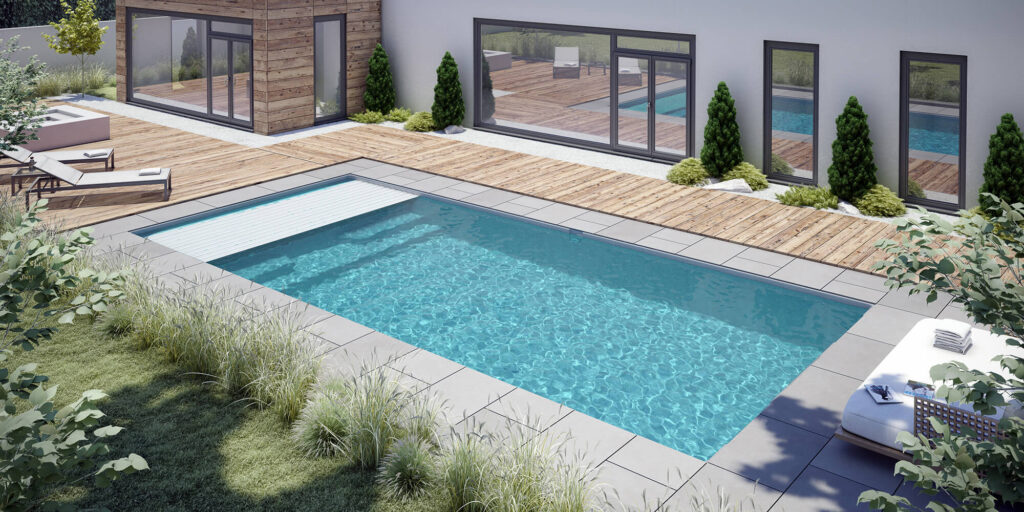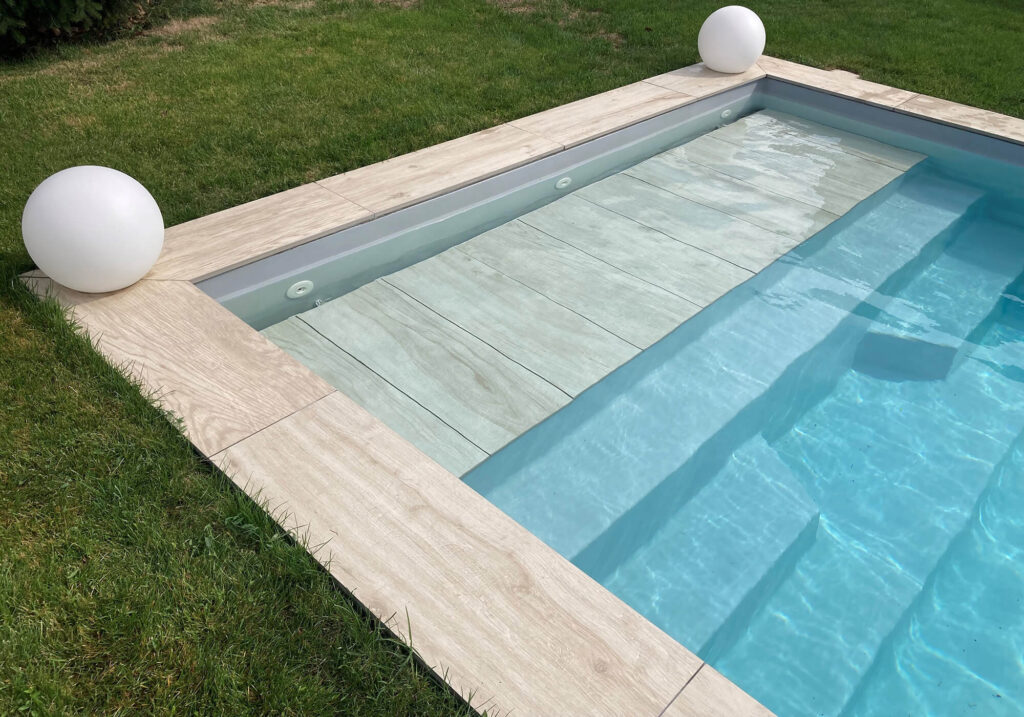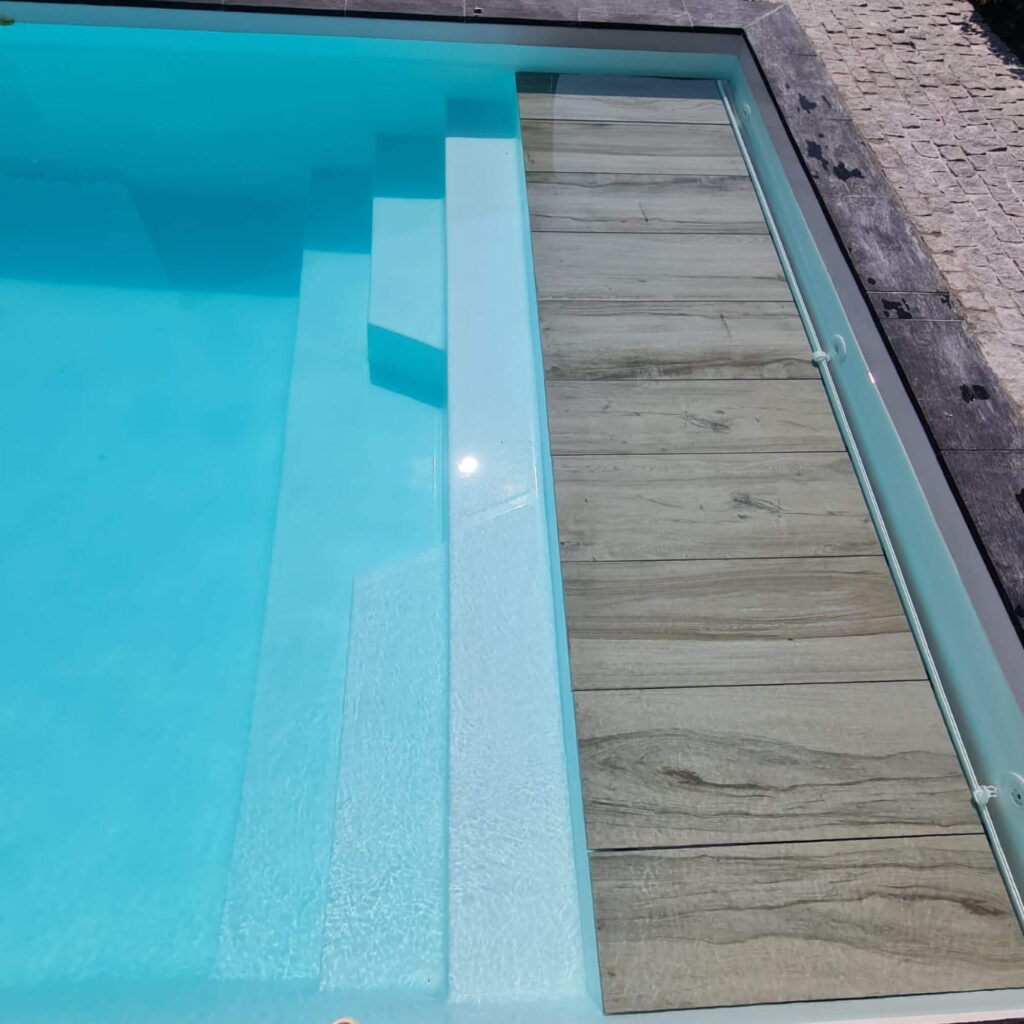Our team of experts will be with you every step of the way, helping you to carry out your project, select your model and choose the right equipment.
Our state-of-the-art production machines ensure that the quality of your pool is beyond reproach.
We offer you an exceptional range of ponds and all the equipment you need to create your own paradise.
We are proud to offer you a wide range of products and services to help you realise your project.
Our team offers you a visit from an expert who will guide you through all the stages of the planning phase: location, orientation and size of your water feature. He or she will help you choose a model that suits your needs and budget, and select the accessories.
At Aboral, we’re always one step ahead. To continually satisfy you and meet your expectations, we have taken up the challenge of installing a ready-to-dive pool in just 4 days. As soon as manufacturing is complete, our shell pools are shipped directly to your home and installed within 4 days by qualified technicians.
Configure the pool that suits you in 2 minutes
When you choose Aboral, you’ll enjoy the peace of mind that comes with a ten-year guarantee* and a selection of the best products available on the market. Our experts are at your side to help you design the pool of your dreams, whether it’s a simple shell pool, a mini pool, a shell pool with a submerged cover box or a shell pool with a submerged cover box under the deck.
Choosing a swimming pool is a major investment. You want to enjoy your time in the water with your family or friends, but you also want it to be safe and durable. As well as the quality of the product, installation plays an important role in ensuring that your pool meets all safety standards.
It’s important to have a pool installed by a professional who has experience and can provide you with a guarantee. The installation process is complex and requires specialist equipment, so it’s best to leave it to the experts.
Our experts are on hand to help you design the pool of your dreams. Our products are made from high-quality materials and are built to last. They come with a warranty that gives you peace of mind knowing your investment is protected. Aboral has been in business for over 20 years and has built up an excellent reputation in the industry. We have many satisfied customers who can attest to the quality of our work and products.
We understand that our customers are looking for a company they can trust. We understand that you want your pool to be the focal point of your garden, which is why we strive to make it stand out! It is important to us that you are satisfied with your purchase and your experience with Aboral Piscines.
Size, shape or colour of the shell… Whatever the characteristics you wish to give your shell pool, our production tools are capable of meeting each of your needs to guarantee you a swimming pool that reflects your image. And because a swimming pool construction project is not to be taken lightly, Aboral offers you a simple and effective tool for configuring your made-to-measure pool.
You’ll be able to choose from 28 polyester shell models, 5 colour options and all the features of an Aboral pool. In less than two minutes, you’ll receive a personalised quote for your made-to-measure shell swimming pool, in just 24 to 48 hours.
Customised support throughout your project
Because our customers are at the heart of our concerns, your Aboral swimming pool manufacturer will be with you every step of the way, from design to final delivery and beyond. To do this, an Aboral contact will be entirely dedicated to you; attentive to all your needs, our expert will be able to respond to each of your constraints.
To guarantee the best possible results, our team works closely with you throughout the process. We ensure that everything is done to your specifications and that any questions are answered in a timely manner.
With Aboral, you will always be treated as a valued customer. We love what we do and are passionate about building pools. We’ve been working with our customers for over 20 years to bring their dream pool to life!
The Aboral team is on hand to answer all your questions and guide you through the process. Because our customers are at the heart of our concerns, your Aboral piscinist will support you at every stage of your project, from design to final delivery and beyond.
Does your site have any special features? Do you have a preference for a particular material or colour? Your Aboral professional is available throughout the construction project to listen to your wishes and work around a product that respects process and quality control.
And once the building work is finished and your pool is up and running, there’s no question of you being left in the lurch when it comes to maintaining your pool! Thanks to the Aboral Shop online shop, you’ll find everything you need to maintain and equip your pool (cover, heat pump, pool robots, etc.). In addition to the advice provided by our experts, a detailed comparison enables you to adapt your equipment to the technical characteristics of your pool.
Do you have a question? No problem, our sales department is here to help, whatever your needs.
